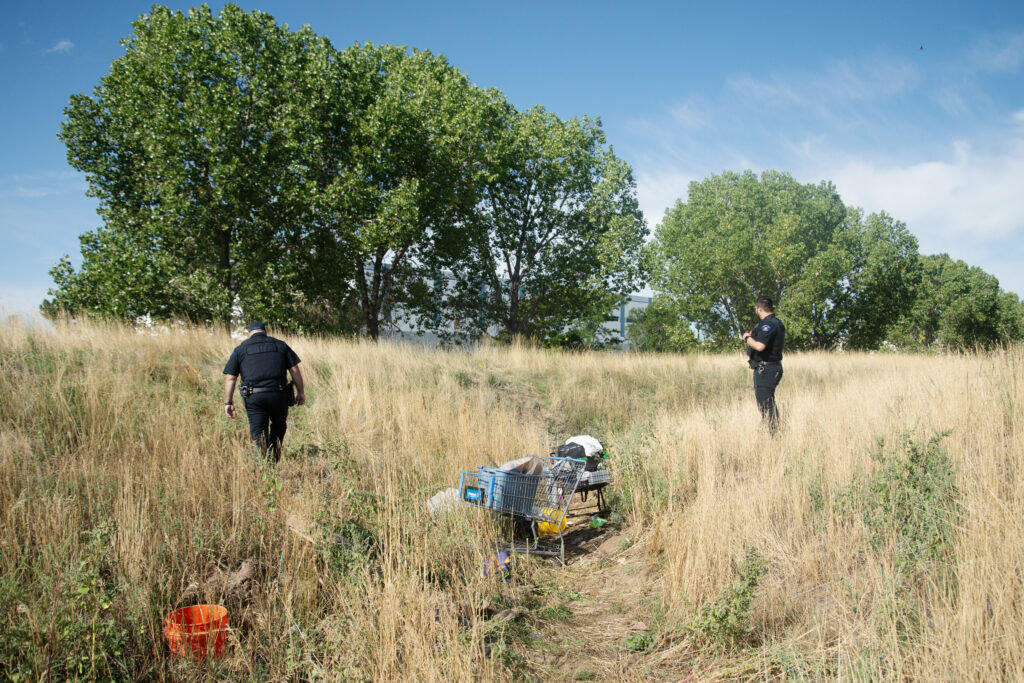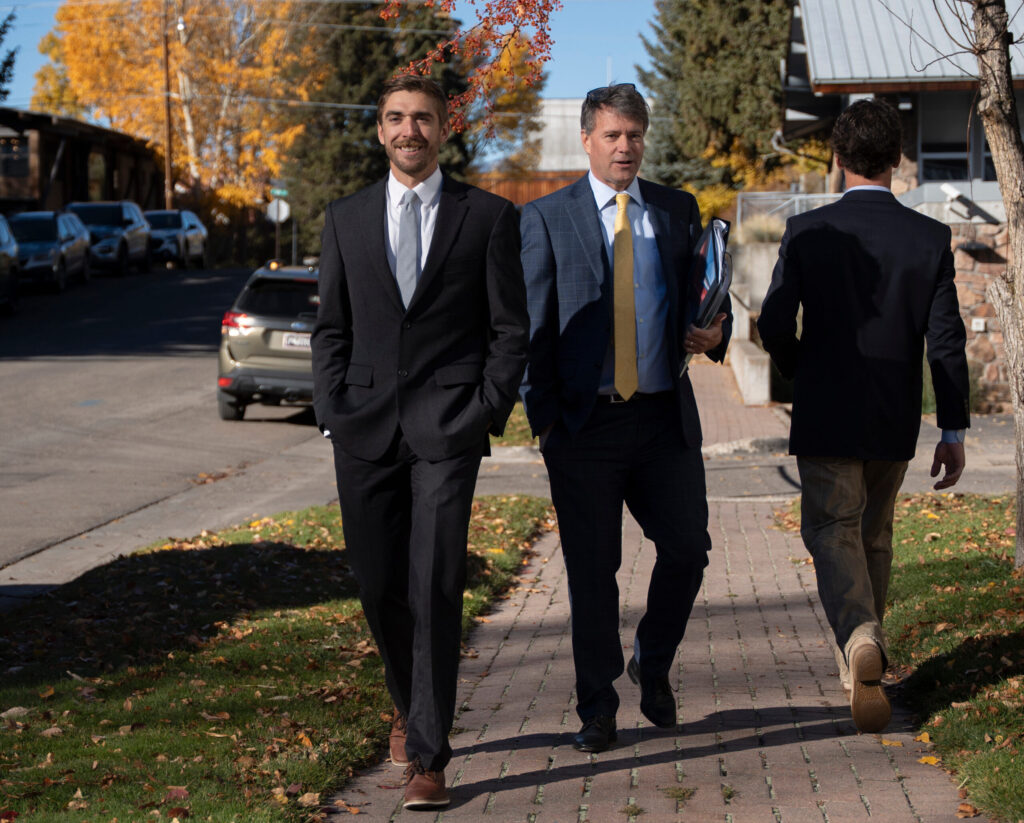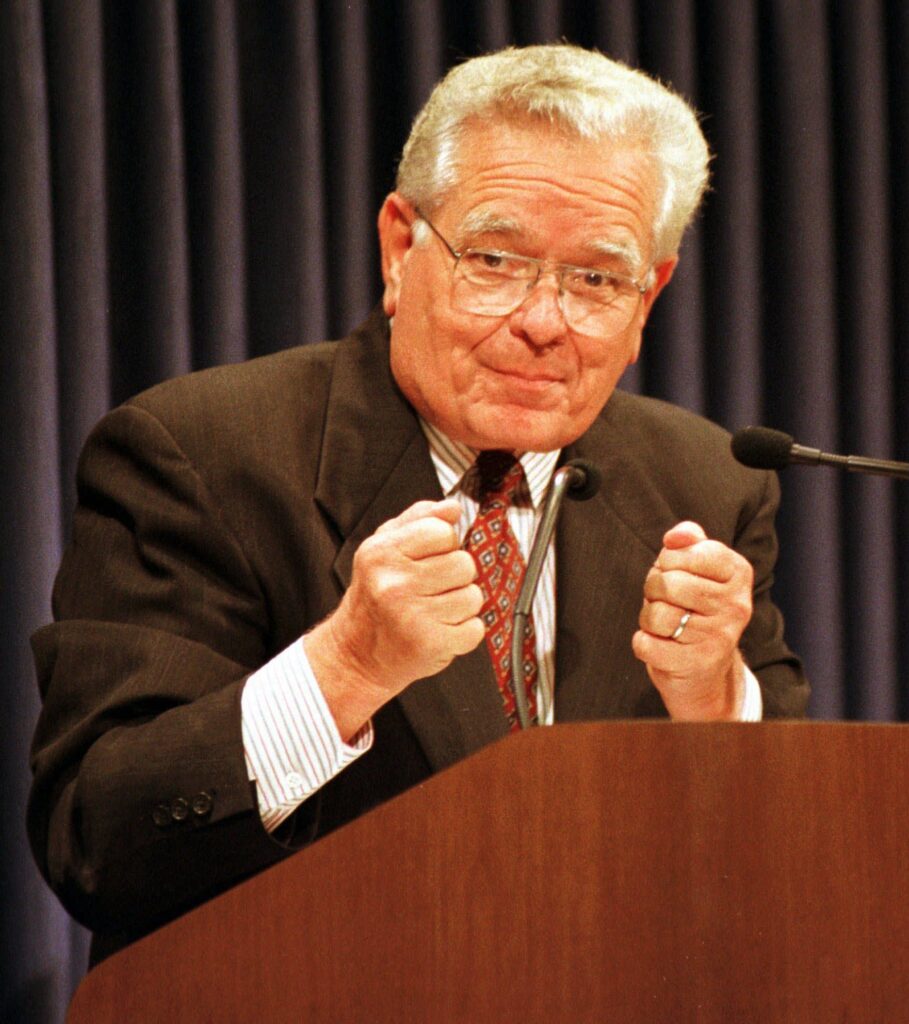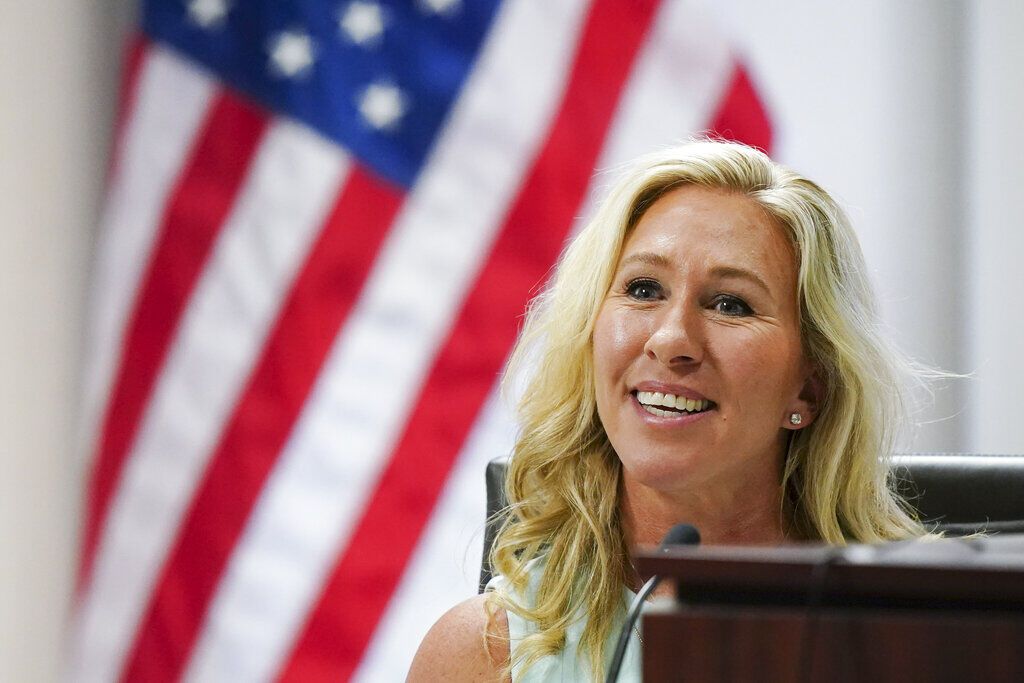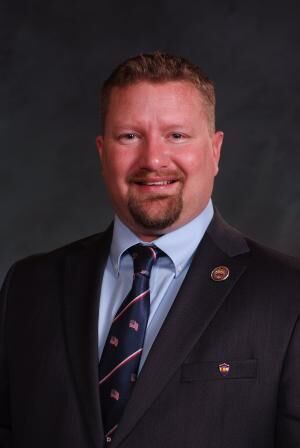Aurora’s ‘tough love’ approach to homelessness an early success to some, not favored by others
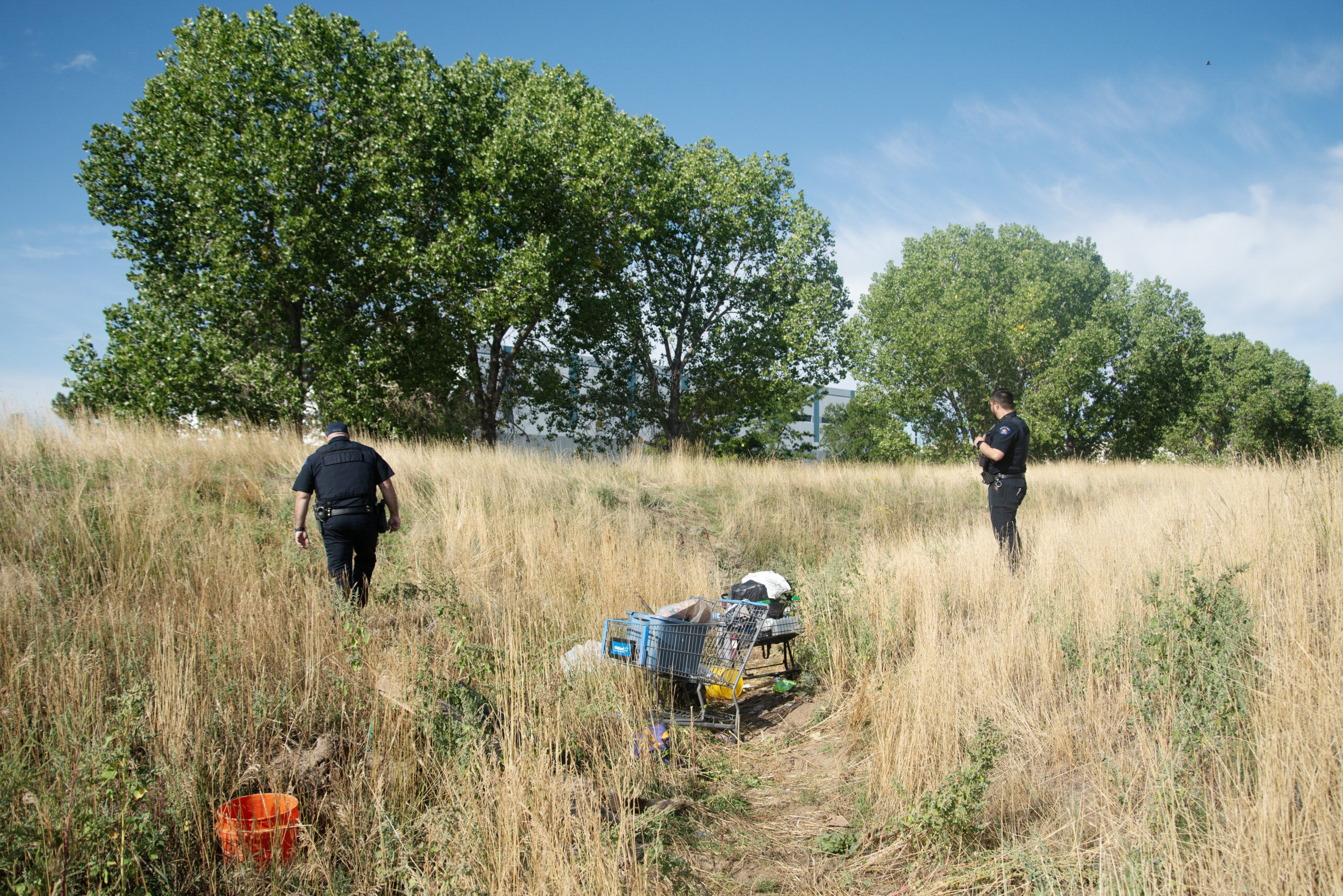
Over the past year, Aurora councilmembers have moved forward with what the mayor has called a “tough love” approach to homelessness, enacting a camping ban, alongside starting a court system to address low-level offenses by homeless people.
With the camping ban in place, a police team of six specifically created to enforce it and the early stages of the court system in the works, Aurora’s mayor said he’s seeing some progress but that the pieces won’t fully fall into place until Nov. 15, when Aurora’s homeless navigation campus — a “one-stop shop” for homeless services and shelter — opens and expands the city’s shelter bed availability.
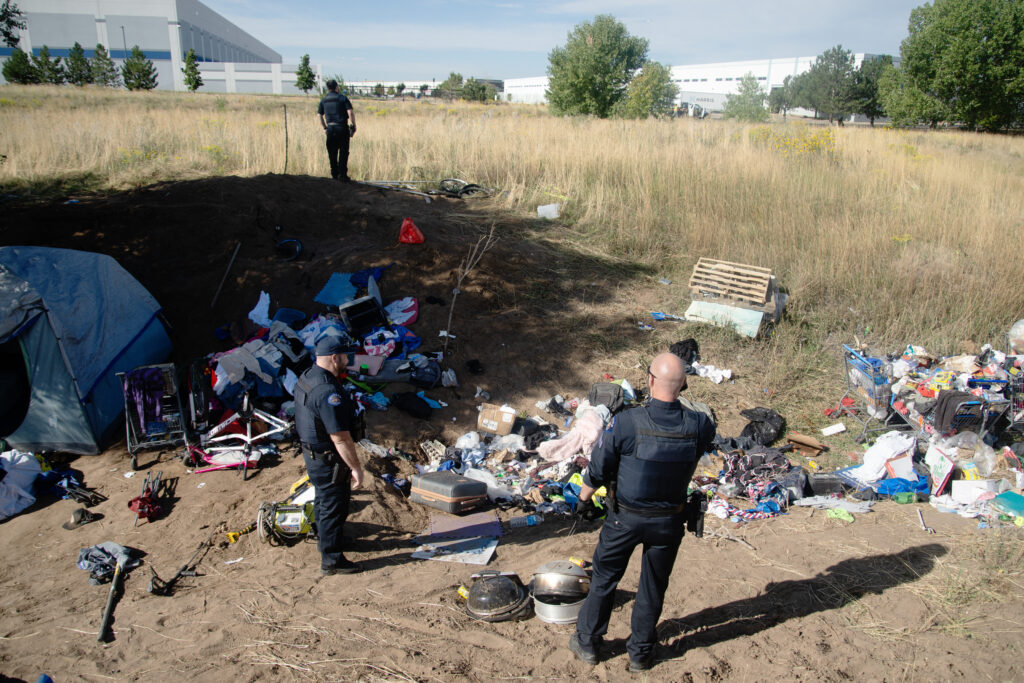
Several homeless people, meanwhile, are skeptical of the court system, saying they don’t frequently hear about the services available to them and wish city officials would help them before they get in trouble with the law.
Multiple people argued the camping ban just makes it more difficult to be homeless — which, they said, is already challenging and scary without the added fear of getting in trouble with the law and having to pay tickets with money they don’t have.
New camping ban
Aurora lawmakers officially passed an ordinance in February that got rid of requirements to provide shelter options and 72-hour notice before sweeping homeless encampments.
Previously, city code read that “no city employee authorized to issue a citation shall issue a citation, make an arrest, or otherwise enforce this section against a person camping on public property unless the city has a shelter option available for the person ordered to move from the camp and the person has been offered placement in the shelter option.”
The new ordinance made it such that “having a shelter option … is preferred before the city abates an unauthorized camp but is not a prerequisite that will prevent the abatement of an unauthorized camp.”
It also got rid of the previously required 72-hour notice police had to give homeless people before clearing encampments.
The ordinance followed a Supreme Court ruling that the Eighth Amendment’s cruel and unusual punishment clause does not prohibit the enforcement of a rule prohibiting camping on public property, according to the language of the ordinance.
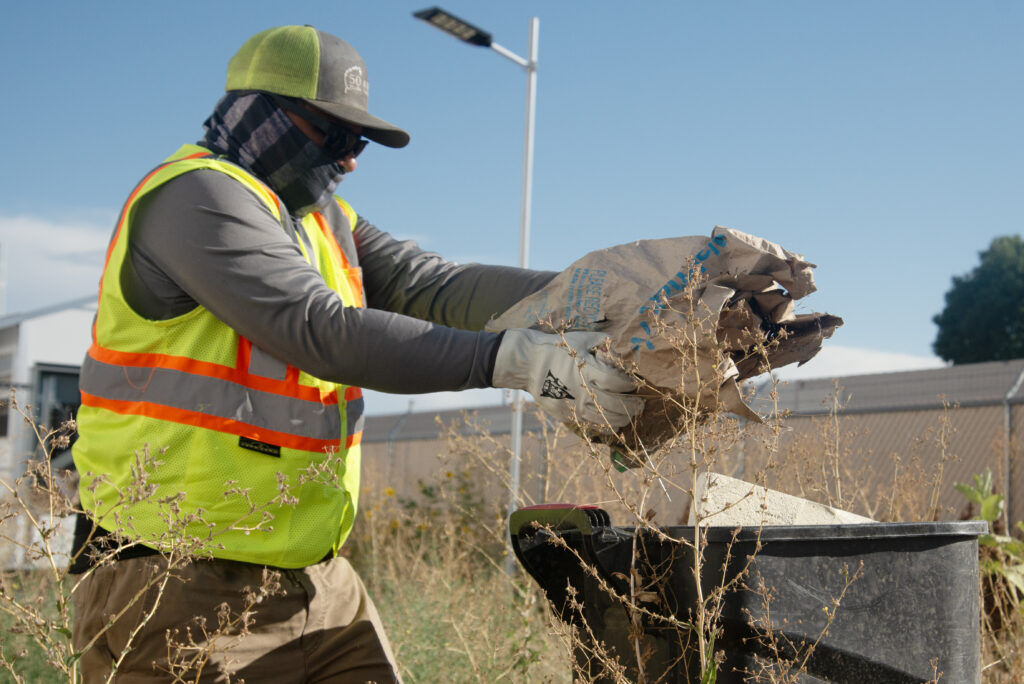
The city’s “tough love” approach measures success by employment and self-sufficiency, rather than how many people are taken off the streets, city officials have said.
HEART Court
A key part of that campaign, Aurora officials have created a new court system meant to handle low-level offenses by homeless people.
Coffman proposed the Housing, Employment, Addiction, Recovery and Teamwork (HEART) Court last April, intending the court system to work in conjunction with the new camping ban.
The idea behind the court system is to give low-level offenders the option to either go to probation with court-ordered requirements to participate in homeless services, such as addiction prevention and mental health treatment, or go to jail.
Still in its early stages and considered a pilot program, the HEART Court program can only currently be offered to homeless people by police officers on Aurora’s Homeless Abatement Relocation (HART) team, and only in places where signs about the camping ban are posted, Aurora Presiding Judge Shawn Day said.
The court officially launched in January, but was not up and running until Feb. 15, Day said. It is held twice a month, on the second and fourth Wednesday, at 1:30 p.m. at the Center Tech Plaza Shopping Center located at 15660 E. 6th Ave.
Initially, between February and July, only two camping ban signs were posted, so officers could only offer the court program to people camping in those two areas.
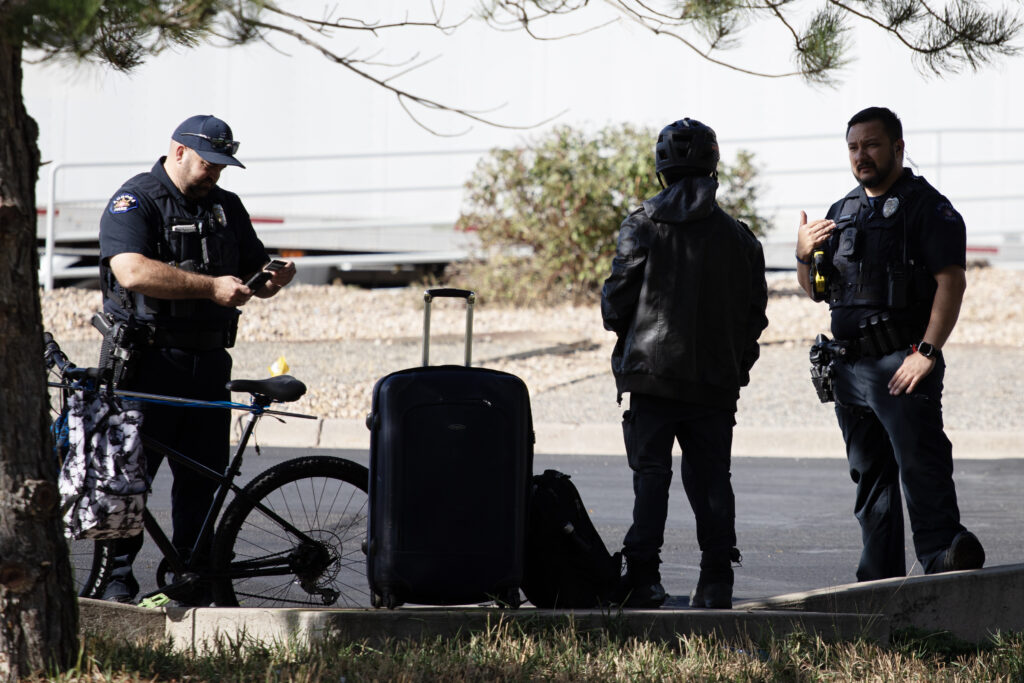
Starting in July, they added nine additional signs, he said.
Since Feb. 15, officers have handed out 31 HEART court-eligible tickets. Of them, HEART court officials have successfully engaged with seven people, Day said. Not all of the seven people stayed engaged, he said, and officials are trying to locate them to get them re-engaged.
The entire HEART court process takes about a year, Day said, and it includes several different stages. Depending on how a person engages with the process, they could finish earlier or it could take longer for them to meet all the court requirements.
For the first nine months of the program, participants are actively involved in court, according to the HEART participant handbook. After that, there are three months of aftercare.
In Phase 1 of the program, the focus is on engagement, the handbook says. The phase takes about one month and participants create a case plan with the program’s team to address their needs.
Phase 2, referred to in the handbook as “desire to change,” prioritizes treatment and housing, and participants work to find long-term shelter and start to address employment and education needs, while attending all scheduled court sessions.
Phase 3 is where “action will start taking place in the participants’ progress and recovery,” the handbook says. Participants in this phase are required to keep attending court and seeking long-term housing, actively engage in employment and education activities, and attend prosocial activities like volunteering or community events.
In Phase 4, participants create a discharge plan to present to the court. The plan has to include proof of employment or education enrollment, a housing plan, as well as a plan for continued stabilization. Participants also have to write a “graduation paper” to present to the program team that includes goals moving forward, what they learned and how they will maintain positive life skills.
“One of our program participants, she’s just crushing it,” Day said. “She’s doing so well that she’s already in Stage 3 and she’s just a rock star at this point.”
Once the Aurora Navigation Campus opens in mid-November, officials hope to be able to offer the court option to more people, Day said. For now, the challenge is housing options and resources.
“We’ve done this in a very deliberate way because we wanted to make sure that when we rolled out the program, we were resourced well enough to handle what was coming,” Day said.
‘Very successful’
Aurora Police Sgt. Joshua Perrott is the supervisor of the HART team. He said the team has been successful in their encampment sweep efforts.
In the time the HART team has been in operation, about a year, they have expanded from two to six officers, Perrott said, and they hope to grow as the navigation campus opens.
The HART team works closely with the city’s homeless outreach team, whose officials provide resources, such as housing vouchers, while the HART officers work on the enforcement end of things.
Their team has been “very successful” in the number of people they’ve made contact with and the number of campsites they have cleaned out, he said. Perrott did not have an exact number of people his team has made contact with, but said they contact six to 10 people each day and have contacted “hundreds” since they started.
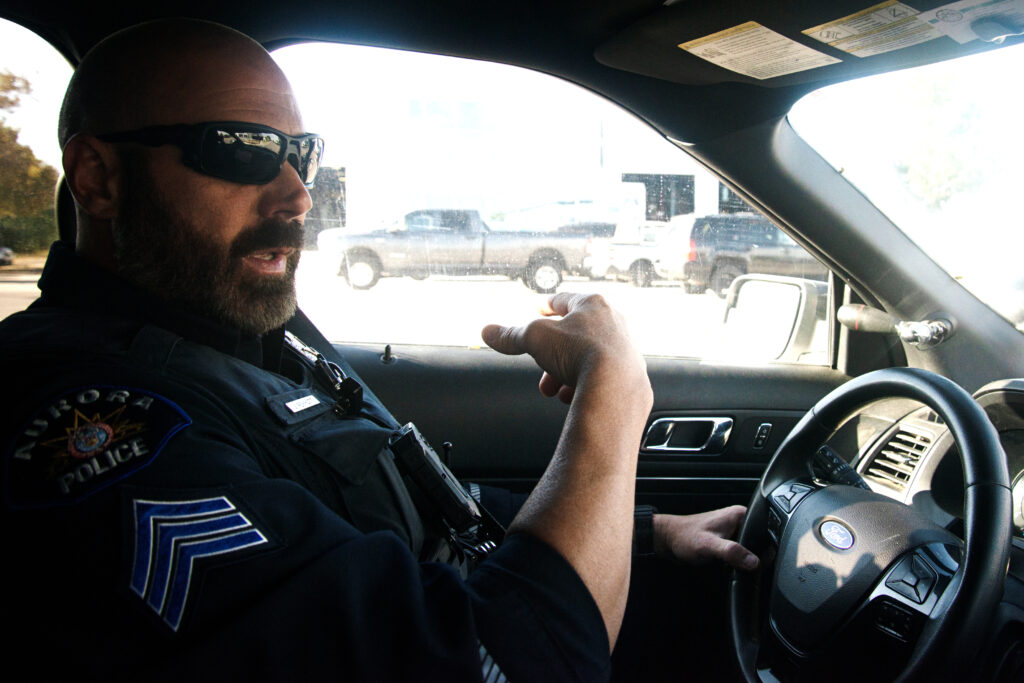
“Just in the amount of campsites we’re been able to clean out and the number of people we’ve been able to contact, it’s been very successful,” Perrott said.
The city schedules abatements a week in advance, Perrott said. His team starts at 8:30 a.m., with scheduled encampment sweeps.
By getting people involved in the HEART court system, especially as that program grows, Perrott’s team is helping people access resources, he said.
“I honestly believe sometimes with a lot of these people, the only way we can get them into the system is get them into the court system,” he said. “If I just say, ‘Hey, don’t do that again,’ they’re not going to get those resources because we can’t find them. Getting them into the court system gives them the resources.”
‘Illegal to be homeless’
Angie Harris has been homeless since 2021, when a new owner bought her apartment complex and doubled her rent.
Harris and her husband are well aware of the HART team, she said, but haven’t heard anything about the HEART court.
The HART team and new camping ban have made it even more difficult to be homeless in Aurora, Harris said, adding that more and more people in the homeless community are “paranoid,” as word of the camping ban spreads.
“They just made it illegal to be homeless,” she said, adding that there’s not enough help for families like hers.
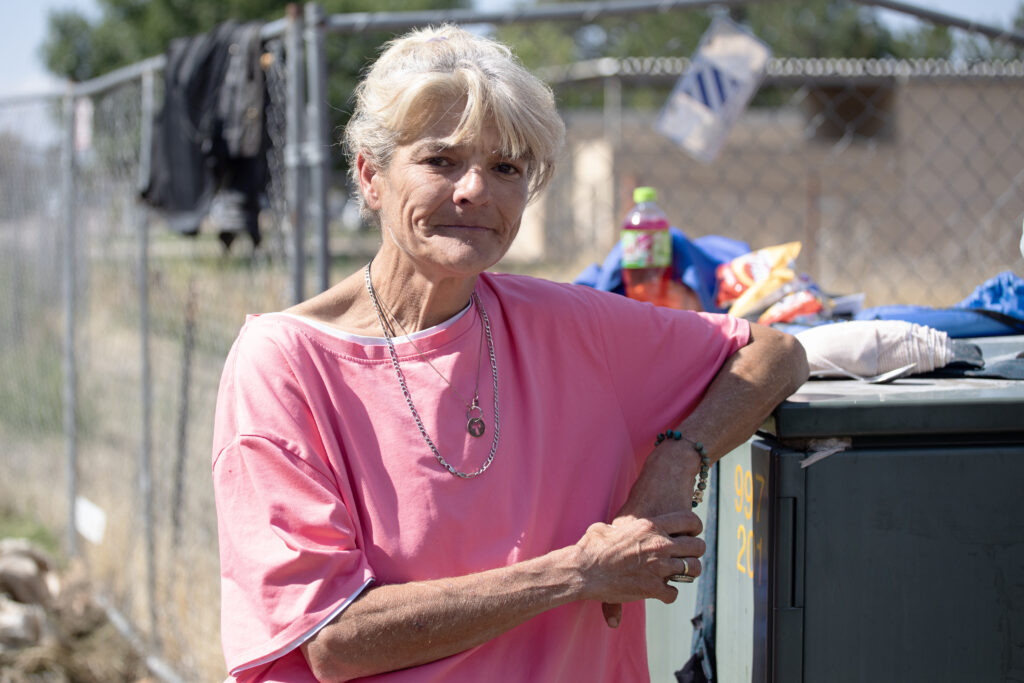
When Harris goes to the Aurora Day Resource Center, she and her husband are “forced” to sleep on opposite sides of the room and get help separately, despite not wanting to be separated, she said, which makes staying in shelters a less desirable option.
Harris said she heard about the resources from other homeless people, not from the people who say they want to help.
“There’s hardly anywhere to go,” Harris said. “There are resources, but there aren’t enough people telling everybody about them. If it weren’t for (other homeless people), I wouldn’t know about the resources I have now.”
Harris had not heard about the HEART court but said she got a jaywalking ticket in Wheat Ridge and attended a court similar to Aurora’s HEART court.
She was able to fight the ticket and win but said it strikes her the wrong way that Aurora officials only offer help after homeless people get in trouble.
“The only reason they’re helping people is because they’re committing crimes that shouldn’t even be crimes,” she said, pointing to things like sleeping in tents outside. “It’s like we’re spoiled children who need to be ignored or pushed aside until we tire ourselves out … I can’t get help unless I get in trouble with the law.”
Walter Kolak, who is also homeless, said he tries to keep moving so he doesn’t get arrested. When the Aurora Day Resource Center periodically closes for cleaning, Kolak used to sit in the grass on surrounding property.
He never had a problem with that until the HART team came along, he said.
“Now, you gotta keep moving or you’ll be ticketed and arrested,” he said. “If you’re homeless, how are you going to come up with the money to pay a ticket?”
Dennis Nance, who is also homeless, said the camping ban just leaves homeless people without anywhere to go. He was under a bridge along Colfax Avenue in late September when a team of police officers showed up and cleared himself and others out into the rain.
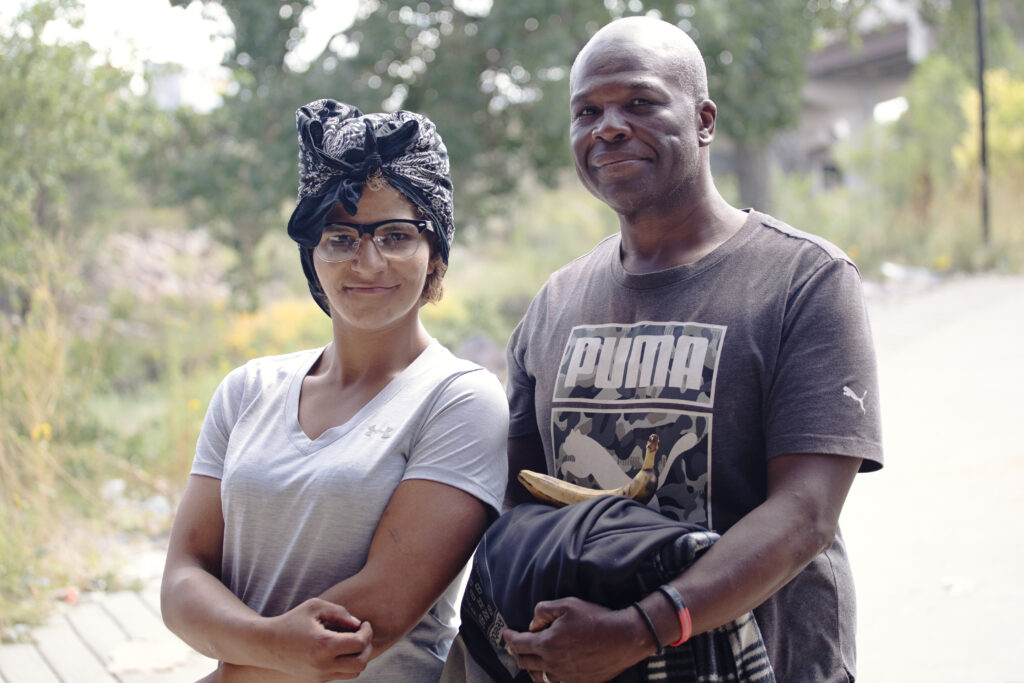
“They don’t have room in the shelters, and we can’t be here,” Nance said. “They herd us out like cattle.”
Mercedes Davis often stays up all night to avoid police entirely, she said. She no longer puts up a tent because she doesn’t want any kind of police interaction. It leaves her exhausted, she said.
“We can’t be anywhere,” she said. “It hurts. And it’s understandable, but most of us out here can’t get housing and can’t get the help we need.”
Mayor: ‘We can do better’
Coffman, the city’s mayor, has high hopes for the camping ban and the HEART court system, but, he said, there’s still a “gap” in the system.
Aurora’s Homeless Navigation Campus, which is set to open Nov. 15, is the eventual solution to that gap, he said, bringing more housing to send people to and a place where all of the homeless resources are in one place.
The HART team is effective in sweeping encampments, Coffman said, but there isn’t enough connectivity yet between the enforcement end of the camping ban and the effort to connect those people with the resources they need.
“Visually, I’m seeing fewer encampments across the city,” Coffman said. “It’ll be helpful when we have capacity of a place for them to go.”
Coffman, who rode along with APD’s HART team, said people whose encampments were swept often just relocated across the street.
“Once they did the abatement, there was no follow-up to take them to the Aurora Day Resource Center,” Coffman said. “We can do better.”
Coffman said he is working on a resolution that will require the city to provide transportation to the Navigation Campus on the days of abatements.
“I think we have all the parts in place except the navigation campus,” Coffman said. “We need to be ready.”
